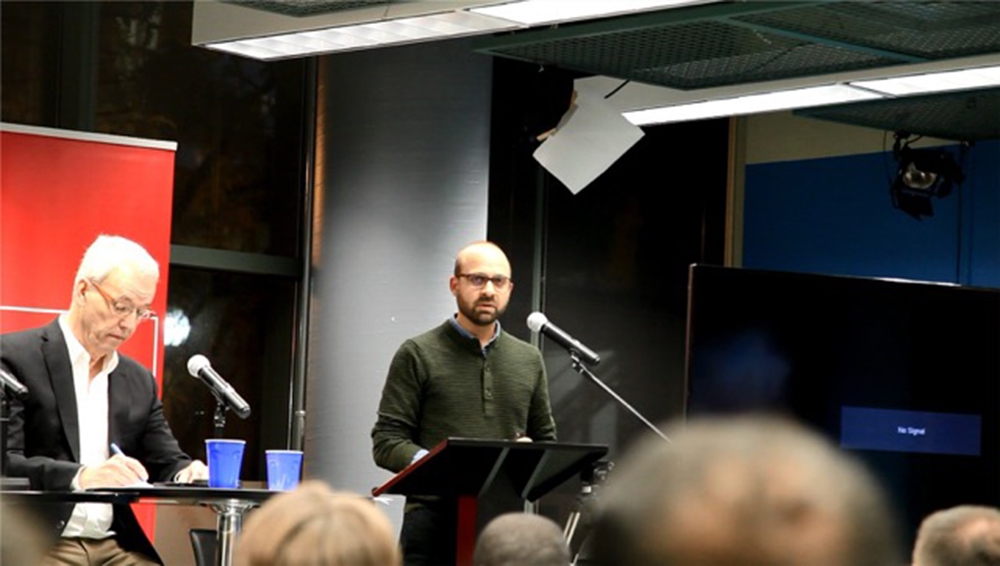Hassam Munir | Executive Editor (Online)
Featured image: York professor Faisal Bhabha, pictured above, is one of several panelists to raise concerns about Bill C-51’s reach and unclear phrasing. | Kevin Metcalf
Osgoode professor Faisal Bhabha joined a group of panelists at Ryerson University’s Centre for Free Expression, or CFE, last Thursday to discuss the impact of Bill C-51 in relation to terrorism, national security and activism.
The discussion was largely critical of the bill: Bhabha and his fellow panelists, Tom Henheffer of Canadian Journalists for Free Expression and Sukanya Pillay of the Canadian Civil Liberties Association, all questioned the need for Bill C-51 as well as the legislation’s obscurity and effectiveness. Also known as the Anti-terrorism Act of 2015, the bill broadened the rights of government agencies to share personal information more easily in the name of national security.
“The problem with the term [terrorism] is that we all think we know exactly what it means, yet we can’t all agree on what it means. This is a fundamental challenge in legislating around this phenomenon. It’s imprecise, it’s politically loaded, it’s prone to discriminatory interpretation and it’s seriously prone to irrational fears and other irrational considerations,” said Bhabha.
Bill C-51 was tabled by Stephen Harper’s administration in January 2015, following terrorist incidents in Canada and abroad that included the attack on Parliament Hill in October 2014 and the attack on Charlie Hebdo in France of early 2015.
“When you combine this very untenable situation with national security laws that give intelligence and enforcement agencies extreme amounts of discretion under a veil of secrecy, the ability to take action with thin accountability and watered-down legal cheques and balances, you have a recipe for travesty, abuse, scandal and lawsuits,” explained Bhabha.
Public opinion polls suggested that over 80 per cent of Canadians supported Bill C-51 in February 2015, though critics pointed out that it would be the most radical national security legislation since the Charter of Rights and Freedoms was established and that Harper was playing “the politics of fear.”
Many York students actively opposed Bill C-51 from the outset, taking part in the Day of Action in downtown Toronto in March 2015 to protest against the proposed
More than a year after their strike, Unit 3 of CUPE 3903 still feels targeted by York administration. legislation. Protesters voiced concerns about Bill C-51’s obscure wording and petitioned federal parties to strike it down.
The Liberal Party voted to pass Bill C-51 into law, but assured Canadians that, if elected in the 2015 federal election, it would amend the legislation to include more parliamentary oversight and more specific definitions of unclear terms.
On September 8, 2016, the Liberal government announced a consultation on national security, which is open to public participation until December 1. The panelists, as well as the moderator, James Turk of the CFE, encouraged the audience to participate.
“The politics of fear, which has had a specific impact on Muslim Canadians, is actually dangerous to everybody in that it erodes the democratic foundations of the state and puts everybody a little bit higher risk of being mistreated and losing their democratic rights,” said Bhabha.




